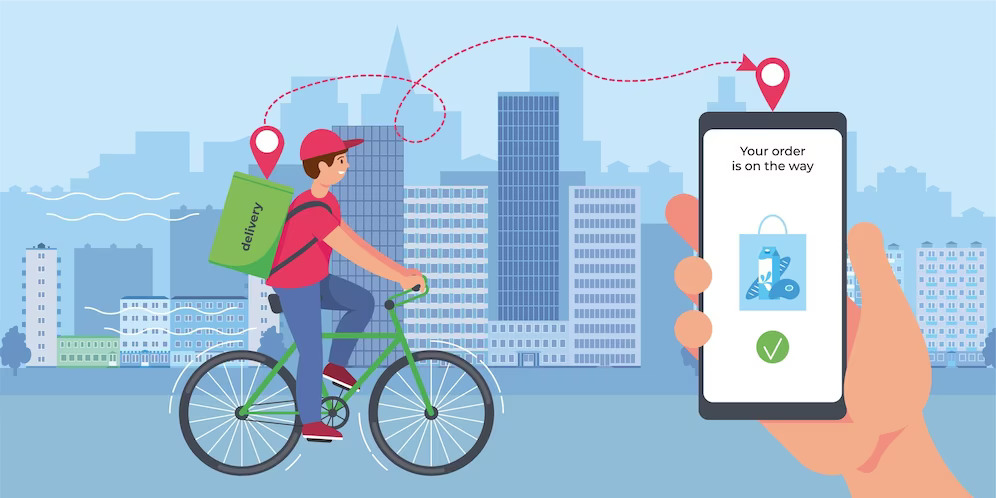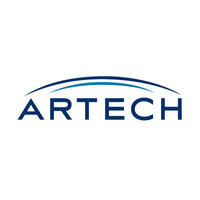Guide To Develop A Medicine Delivery App - Cost & Features
A medicine delivery app is a mobile application that allows users to order prescription medications and over-the-counter drugs from the comfort of their homes. These apps provide a convenient way for individuals to get their medications without having to visit a physical pharmacy.
Market & States of Medicine Delivery App
The market for medicine delivery apps has experienced significant growth in recent years, driven by increasing demand for convenient healthcare services and the widespread adoption of smartphones. These apps have gained popularity globally, with varying levels of penetration in different regions and countries.

Benefits of Medicine Delivery App
Medicine delivery apps offer numerous benefits for both users and healthcare providers. Here are some of the key advantages:
- Convenience: Perhaps the most significant benefit of medicine delivery apps is the convenience they offer. Users can order medications from their smartphones or tablets, eliminating the need to visit a physical pharmacy. This is particularly beneficial for individuals with mobility issues, busy schedules, or limited access to transportation.
- Time-saving: The medicine delivery mobile app saves users time by eliminating the need to travel to a pharmacy, wait in line, and potentially face delays. With just a few taps on their mobile devices, users can place an order and have their medications delivered to their doorstep.
- Improved Access: These apps improve access to medications, especially for individuals living in remote areas or those with limited access to pharmacies. Users can get their prescribed medications even if they cannot reach a physical pharmacy easily.
- Medication Management: Medicine delivery apps often include features that help users manage their medications more effectively. They can store prescription details, set reminders for refills, and track their medication history. Such features promote better adherence to prescribed treatments.
- Confidentiality and Privacy: Some individuals may feel uncomfortable discussing certain medical conditions or purchasing specific medications in person. Medicine delivery apps provide a discreet and confidential way to order medications, maintaining user privacy.
- Availability of Information: These apps typically provide detailed information about medications, including dosage instructions, potential side effects, and drug interactions. Users can access this information quickly, enabling them to make more informed decisions about their healthcare.
- Enhanced Safety: Medicine delivery apps reduce the risk of errors that can occur during the manual processing of prescriptions. The automated systems used by these apps can help ensure accurate dispensing and reduce the likelihood of medication errors.
- 24/7 Availability: Unlike physical pharmacies with limited operating hours, medicine delivery apps are typically available 24/7. Users can place orders and access information anytime, making it more convenient for urgent medication needs.
- Access to Additional Services: Some medicine delivery apps offer additional services, such as online consultations with healthcare professionals or integration with digital health platforms. This can provide users with a more comprehensive healthcare experience.
- Feedback and Ratings: Medicine delivery apps often feature user feedback and ratings for medications and services. This enables users to make informed decisions based on the experiences of other users.
Overall, medicine delivery mobile apps enhance convenience, accessibility, and medication management while promoting user safety and privacy. They have the potential to improve healthcare outcomes by ensuring timely access to medications and facilitating better adherence to prescribed treatments.
Key Features of Medicine Delivery App
Here are some key features commonly found in medicine delivery apps:
- User Registration: Users can create an account by providing their personal information, including name, contact details, and delivery address.
- Prescription Upload: Users can upload a scanned copy or a photo of their prescription if required for prescription medications.
- Medicine Search and Selection: Users can browse through a comprehensive database of medicines, search for specific medications, and select the required items.
- Prescription Management: The app may have a feature to store and manage prescription details for easy reordering and tracking of medications.
- Dosage and Usage Information: The app can provide relevant information about each medication, including dosage instructions, possible side effects, and precautions.
- Order Placement: Users can add selected medicines to their cart and place an order. They may also have the option to schedule recurring deliveries for chronic medications.
- Payment Integration: The app should support secure payment options, such as credit/debit card payments, mobile wallets, or cash on delivery.
- Delivery Tracking: Users can track the status of their orders and receive notifications about the estimated delivery time.
- Refill Reminders: The app can send reminders to users when it's time to refill their medications or renew prescriptions.
- Customer Support: The app may provide customer support through chat, email, or phone to address any queries or concerns.
- Pharmacist Consultation: Some apps may offer the option to consult with a licensed pharmacist through chat or video call for medication-related advice.
- Reviews and Ratings: Users can leave feedback and ratings for the app and individual medications to help others make informed decisions.
It's important to note that the specific features and functionalities may vary among different medicine delivery apps. Additionally, such apps' availability and services may depend on the region and local regulations.
Medicine Delivery App Development Cost
The cost of developing a medicine delivery app can vary depending on various factors, including the complexity of the app, desired features and functionalities, development platform, and the location and rates of the development team. Here are some factors that can influence the cost:
- App Platform: The cost may differ based on whether you choose to develop the app for a single platform (such as iOS or Android) or opt for cross-platform development to target multiple platforms simultaneously.
- Design and User Experience: The complexity and quality of the app's design and user interface can impact the cost. A well-designed and intuitive interface may require more time and resources during development.
- Features and Functionalities: The more features and functionalities you want to include in your app, the higher the development cost. Features like prescription upload, medication tracking, payment integration, and real-time notifications can contribute to the complexity and development time.
- Backend Development: Developing the backend infrastructure for secure data storage, integration with pharmacy systems, user management, and order processing can add to the overall cost.
- Integration with APIs: If you plan to integrate your app with third-party services like payment gateways, pharmacy databases, or location services, the complexity, and cost may increase.
- Development Team and Location: The rates charged by development teams can vary depending on their location and expertise. Rates may be higher in regions like North America and Europe compared to countries with lower development costs.
- Testing and Quality Assurance: Proper testing and quality assurance are essential to ensure the app functions smoothly and securely. The cost may include testing on different devices and platforms to ensure compatibility and reliability.
- Maintenance and Updates: After the initial development, ongoing maintenance, bug fixes, and updates may incur additional costs.
It is challenging to provide an exact cost without specific project details, as each app development project is unique. However, a rough estimate for a medicine delivery app development can range from $10,000 to $20,000 or more, depending on the factors mentioned above.
It is advisable to consult with professional app development companies or freelancers to get a detailed project scope and accurate cost estimation based on your specific requirements.
Conclusion
In conclusion, medicine delivery apps offer a convenient and accessible solution for users to order medications and have them delivered to their doorstep. These apps provide numerous benefits, including time-saving, improved access to medications, enhanced medication management, increased privacy, and access to valuable information. They contribute to better healthcare outcomes by promoting medication adherence and reducing the risk of errors.
The cost of medicine delivery app development can vary based on factors such as platform choice, features and functionalities, design complexity, backend development, integration requirements, development team rates, and ongoing maintenance. It is advisable to consult with professionals to get an accurate cost estimation based on your specific project requirements.
Overall, medicine delivery apps play a significant role in transforming the way people access and manage their medications, providing convenience, efficiency, and better healthcare experiences.
Science and TechnologyYou may be interested in these jobs
-
Senior Director, Club Performance
Found in: One Red Cent US C2 - 1 day ago
Major League Soccer New York, United StatesOverview · Major League Soccer is the top-flight men's professional soccer league in the United States and Canada. We aspire to be one of the top leagues in the world, as defined by our quality of play, the passion of our fans, the relevance of our clubs and the value of our ente ...
-

Material Handler
Found in: ZipRecruiter Standard US C2 - 1 day ago
Artech, LLC North Reading, United StatesJob Description · Job DescriptionJob Title: Material Handler · Location: North Reading, MA 01864 · Duration: 12 months contract · Schedule: 9:30 AM- 6 PM · Job Description: · Duties & Responsibilities · Support for Inventory control and transactions of repair orders and inventor ...
-
Executive Assistant, Government Relations
Found in: One Red Cent US C2 - 3 days ago
University of Pittsburgh Pittsburgh, United States· Executive Assistant, Government Relations & Advocacy · The Executive Assistant in the Office of Government Relations and Advocacy (GR&A) will primarily assist the Vice Chancellor for Governmental Relations and Advocacy, as well as staff members of Commonwealth Relations and F ...


Comments